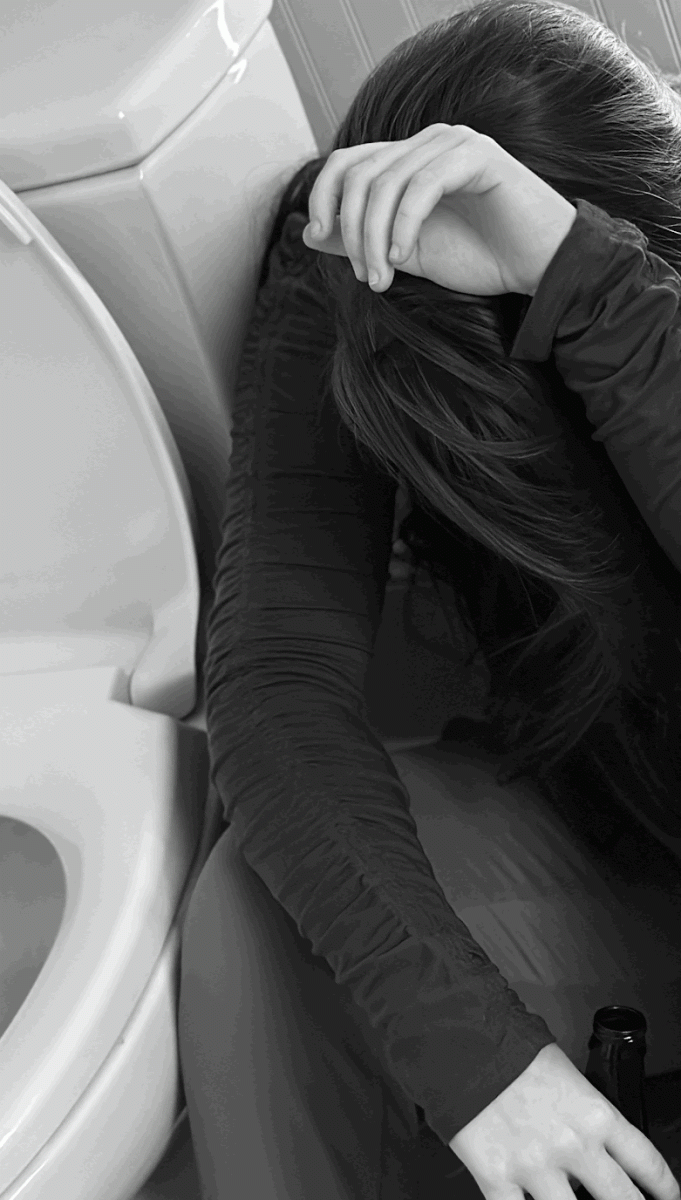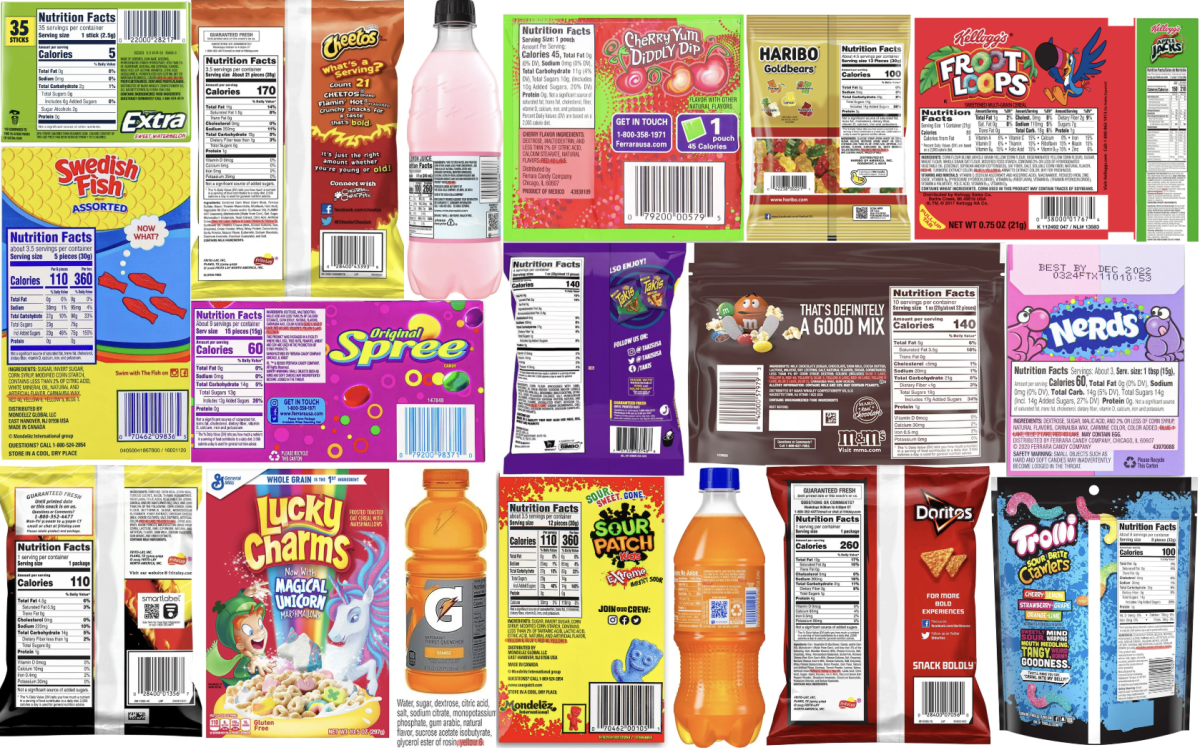This article contains discussion about underage drinking and substance abuse
“What’s the worst that could happen?” is a phrase most will hear many times throughout their teenage years. You can most commonly find it when teens are about to do something that is extremely ill advised. In most cases, shortly after this question is posed, the worst occurs. In our classes, we read books where characters say dumb things which end up foreshadowing exactly what ends up happening to them. So, it comes as no surprise that most behaviors which are normalized for teenagers have future negative consequences. This is most prominent when it comes to drinking alcohol. Although it’s illegal, some teenagers still ask themselves “what could go wrong?” as they take their first sip of a beer, hard seltzer, wine, or any other alcoholic beverage. A hopelessly naive start to a dangerous journey.
Nowadays, drinking has become incredibly common among adolescents and is most prominent in juniors and seniors. A study published in the National Library of Medicine states that the age most teenagers in the U.S. begin drinking is 15 years old. This begs the question: why would anyone who can’t even drive without a parent in the car think that they are responsible enough to drink? And from what I’ve heard, most of them either weren’t thinking or were influenced by their friends. “I had friends who would only go to parties if alcohol was involved,” said an anonymous senior. “They only felt like they were having fun if they drank. Which to be honest is bad but we didn’t think anything of it at the time.”
Alcohol may be a source of momentary relief, but like most illicit substances, it has long-term consequences. The effects alcohol has on the brain and body are large and of course, magnified when it comes to teenagers. According to a research paper published in the national library of medicine, exposure to alcohol and other substances can alter critical processes of brain development as well as cause issues with memory and other neurological dysfunctions. High levels of stress, anxiety and depression combined with the consumption of alcohol increase the likelihood of addiction and alcohol dependence later on.
I had a friend in the past who would drink. She was a freshman in high school who I met online through a few friends who live in Katy, Texas. Shortly after meeting her, I learned about her anxiety and massive stress levels. One day she got drunk to cope with the anxiety and stress, which led to her constant use of alcohol as a way to deal with her negative feelings. What made it worse is that every time I or anyone else would bring it up she would tell us that it’s not a big deal. She would talk about showing up to school still tipsy from the night before. She also described how on multiple occasions she would show up “half asleep and hungover,” barely paying attention to her education because she simply “couldn’t care less,” an attitude which she had previously looked down upon. It got to the point where she had to retake three classes because drinking had begun affecting her education. This in turn just made her stress levels even worse. A bunch of her friends and I got together and tried to help but it didn’t go over well and she ended up cutting off contact with us, ultimately isolating herself from the people who cared for her and wanted to help. The more she pushed us away the worse her addiction got. Over time she became more reliant on alcohol, spiraling deeper and deeper into the rabbit hole of dependence.
Alcohol dependence is much more prominent in adolescents than in any other age group, due to its effects on the growing brain and the hormones produced through the development of our bodies. We all know teenage years are a very hormonal time for almost everyone and as high schoolers we are constantly riddled with stress and anxiety. This array of factors make teenagers an easy target for addiction. When substances like alcohol are used by teens, whether it’s for fun or relief, the teenage body is more susceptible to relying upon that substance. As humans we are programmed to survive and as students, we are constantly in fight or flight mode due to our elevated stress levels. So when there is a substance that relieves that stress even if it’s momentary, upon first use adolescent users tend to turn to it more frequently, which can very easily develop into a serious issue.
An anonymous Village sophomore that I interviewed spoke about their first interaction with alcohol and their first time drinking. They had been hanging out with people who drank every night and their friends would always talk about how amazing being “buzzed” is. Their friends asked them to join, and after a little convincing, they said yes. “I remember the experience positively, you know? I had no problem trying new things because I trusted these people.”, said the anonymous Village sophomore “But at the end of the day I regret it because it took me to a pretty scary place after.” They recall how they began drinking every night. They would drink when they were sad or if they wanted to have a good time and they used alcohol as a way to avoid their problems. This went on for an entire month before they realized what it was doing to them. “I had a moment of clarity, you know? I was sitting there thinking, ‘what am I doing to myself?’ And so I decided to stop because I knew how it was affecting me. But I realized that it’s never that easy,” they said. They then went on to explain how every time they would stop drinking, if afterward they had a bad day or experienced a conflict, they would start thinking about how they would feel a little better if they drank. “I consider myself a pretty smart person, so that was a low for me. When I was younger I used to think of addiction as something easy to overcome, and even though I barely got a taste of it I was so overwhelmed by how incredibly hard it was,” they said. This just shows how even a small lapse in judgment can transform into a horrifying long-lasting issue with major consequences.
A common misconception is that people who are addicted to a substance, whether it be alcohol or nicotine or any number of things, are weak-minded because they aren’t able to quit. But the truth is that it is so much more difficult than people think it is. If quitting for adults is difficult, just imagine how hard it is for teenagers. When an addiction thrives, the victim starts relying on that substance for a various number of reasons. We as human beings are programmed to do anything we think is necessary for survival, and overuse of substances causes the brain to think that they are a necessity for the survival of the user. Another thing that makes quitting difficult is just the habit some make of drinking, and while I have not experimented with alcohol before, I’m sure we all can attest to how hard it is to break a habit.
When it comes to alcohol addicts, in most cases, drinking has become a normal part of life and the addiction itself makes them feel reliant upon alcohol. The harsh reality of this is that I have spoken to many people about this and almost all of them had similar experiences to share, of either their struggle with alcohol or a close friend’s. So next time you consider drinking, ask yourself the following: Why am I doing this? Do I want to do this? Am I in a positive state? Am I in a safe space? Are there people around me that I trust? And can I stop myself? If the answer is “I don’t know” or “no” to any of these questions, you should stop and put the drink down.
Addiction is terrifying, and even though most are aware of this, many people, especially teengaers believe that it only happens to others for various reasons. It’s important that we as a community actively combat it together. So, if you notice that you or a friend is expressing signs of addiction, it might be time to talk and ask for help. As we grow and develop, we must make responsible decisions regarding our bodies. These are the times in our lives when we are most easily influenced and things that might seem harmless now could have major consequences in the future. So let this serve as a reminder, alcohol is a substance that is frequently abused and even if you are young and smart, being wise does not make you immune to its effects. Stay safe, be responsible, hold yourself accountable and, as always, think before you drink.








